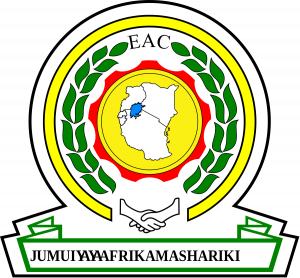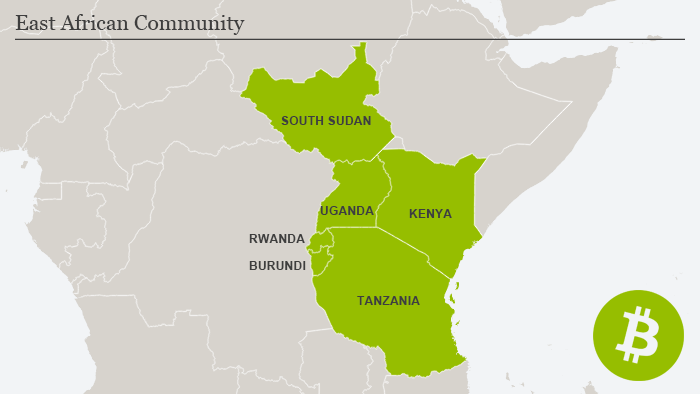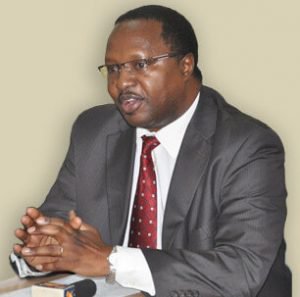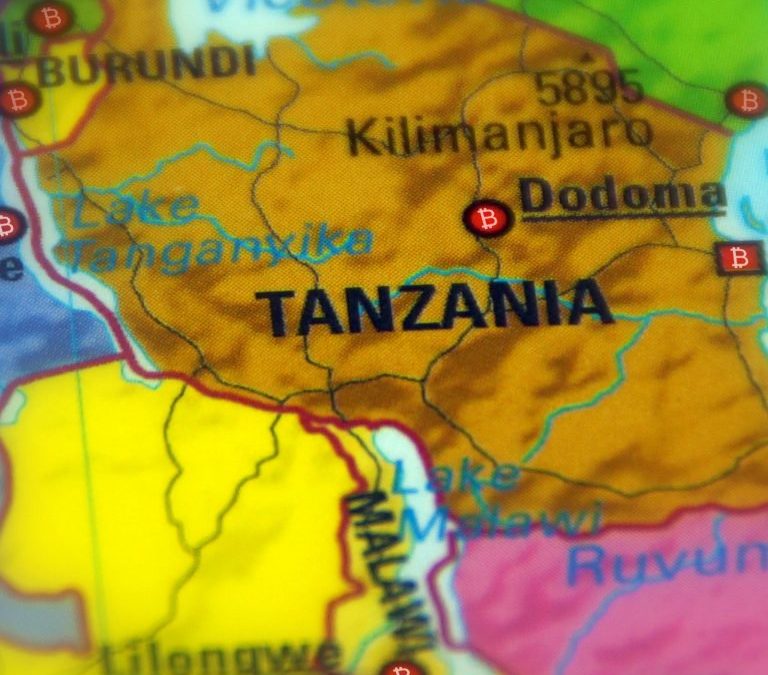Due to a declining economy and eroding national currencies, the East African Community (EAC), an intergovernmental central bank organization composed of six countries in eastern Africa have plans to adopt a unified currency. However, the growing popularity of bitcoin and other digital currencies are hindering the East African central bank’s abilities to establish a harmonized EAC currency.
Also Read: Bitmari Becomes First Bitcoin Company to Partner With an African Commercial Bank
‘The Objective of the Bitcoin Founder Is Quite Different from That of the EAC Member States’
 This past October news.Bitcoin.com reported on the Bank of Tanzania’s (BOT) growing concern about east African citizens investing and using bitcoin. The BOT governor Benno Ndulu has noticed bitcoin’s rise and stated the “[central bank] is now working to see if the BOT should allow [bitcoin], regulate it or ban it.” This week the East African publication the Daily News contacted the BOT to find out how bitcoin is affecting the bank’s plans to initiate a single currency. The unified currency will be considered legal tender in Burundi, Rwanda, Tanzania, Kenya, Uganda, and South Sudan.
This past October news.Bitcoin.com reported on the Bank of Tanzania’s (BOT) growing concern about east African citizens investing and using bitcoin. The BOT governor Benno Ndulu has noticed bitcoin’s rise and stated the “[central bank] is now working to see if the BOT should allow [bitcoin], regulate it or ban it.” This week the East African publication the Daily News contacted the BOT to find out how bitcoin is affecting the bank’s plans to initiate a single currency. The unified currency will be considered legal tender in Burundi, Rwanda, Tanzania, Kenya, Uganda, and South Sudan.
Mr. Bernard Dadi, the BOT’s National Payment System Director, revealed the EAC nation states are still in the process of creating the unified currency, but digital currencies have presented new challenges.
“The objective of the bitcoin founder is quite different from that of the Community Member States on establishing a single currency — As we’ve said, the process to have a single currency is still underway with consideration of available challenges including the growth of bitcoin.”

The EAC Member States Are Researching Digital Currencies Before They Decide to Approve, Regulate, or Ban Them

According to Mr. Dadi, the BOT is working with cryptocurrency experts from the UK and have attended digital currency workshops. BOT management and senior staff officials are still going over the process of whether they will approve the use of virtual currencies based on the workshop results. Mr. Dadi details that EAC member states have issued warnings about bitcoin and more recently the central banks of Kenya and Tanzania have issued warnings to retail investors.
“Not just in Kenya … South Africa, Swaziland, Namibia, Uganda and other African nations have since warned their people about bitcoin,” Mr. Dadi emphasizes.
Bitcoin Adoption Continues to Grow in Eastern Africa But Removes the Focus Away from the EAC Unified Currency Objectives
The EAC members believe the trending popularity of digital currencies like bitcoin is making things difficult for the unified currency plans. Patrick Njoroge, the governor of Kenya’s central bank, says that the EAC nation states economies have gotten much better due to the partnerships of the six-country intergovernmental organization. The London School of Economics, bilateral trade relations have improved since the EAC’s union began. However, alternative currencies like bitcoin are leading residents in another direction, and its a path the EAC organization believes is not helpful to the unified currency plans.
Meanwhile, bitcoin use in the six EAC countries is growing, and interest in the decentralized currency is trending in Africa particularly in Uganda, Kenya, and Tanzania according to Google Trends data. East African bitcoin enthusiasts are using exchanges like Localbitcoins, Remitano, Bitpesa, and Xapo. Localbitcoins trade volumes in the EAC region have also seen all-time highs over the past few months.
What do you think of the EAC nation states saying bitcoin is hindering the creation of a six-country unified currency? Let us know what you think in the comments below.
Images via Shutterstock, the African Digital Banking Summit, and the EAC.
We got it all at Bitcoin.com. Do you want to top up on some bitcoins? Do it here. Need to speak your mind? Get involved in our forum.
The post Bitcoin Adoption in Africa Hinders EAC Plans for a Unified Currency appeared first on Bitcoin News.










